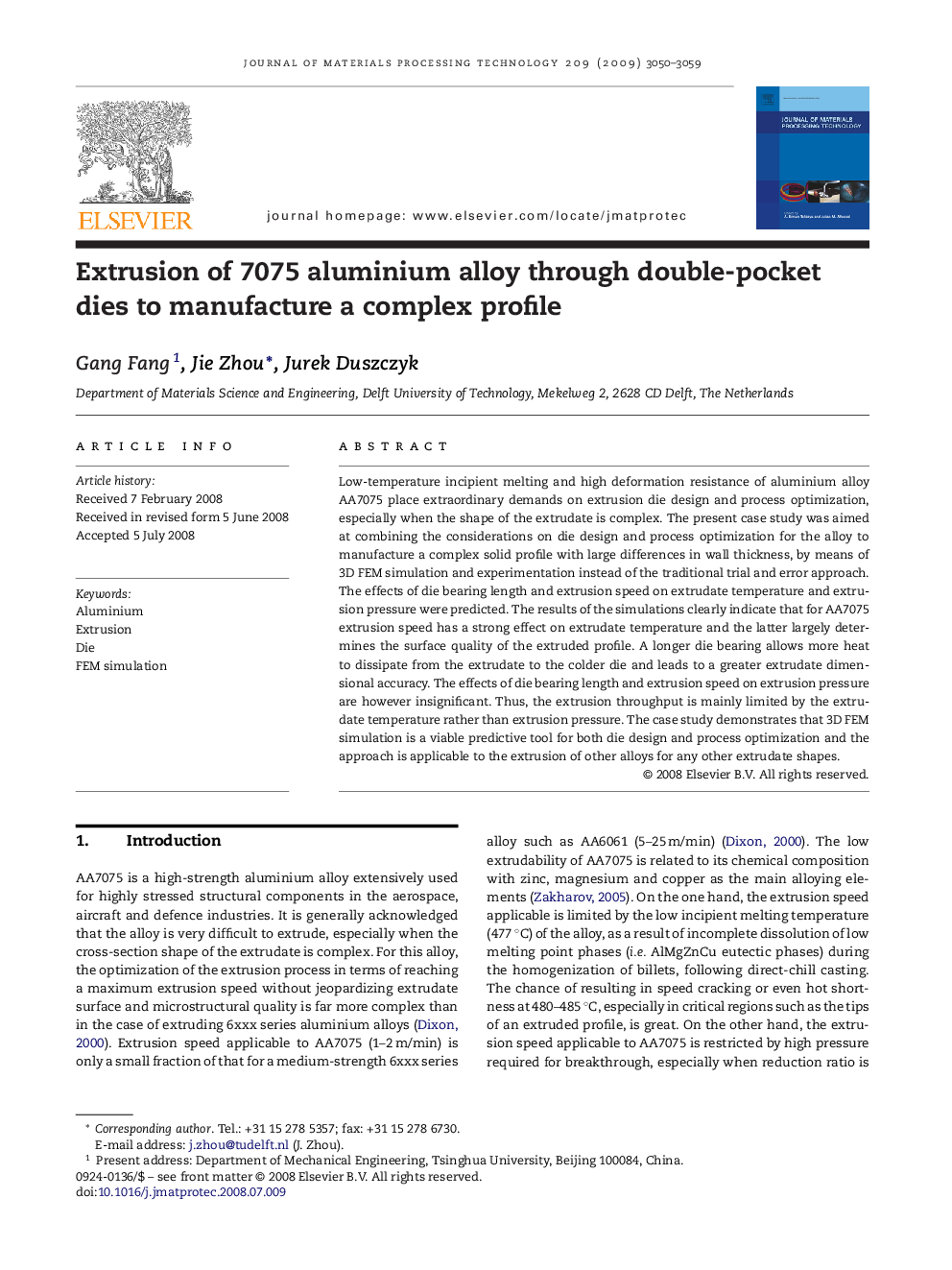| Article ID | Journal | Published Year | Pages | File Type |
|---|---|---|---|---|
| 793603 | Journal of Materials Processing Technology | 2009 | 10 Pages |
Low-temperature incipient melting and high deformation resistance of aluminium alloy AA7075 place extraordinary demands on extrusion die design and process optimization, especially when the shape of the extrudate is complex. The present case study was aimed at combining the considerations on die design and process optimization for the alloy to manufacture a complex solid profile with large differences in wall thickness, by means of 3D FEM simulation and experimentation instead of the traditional trial and error approach. The effects of die bearing length and extrusion speed on extrudate temperature and extrusion pressure were predicted. The results of the simulations clearly indicate that for AA7075 extrusion speed has a strong effect on extrudate temperature and the latter largely determines the surface quality of the extruded profile. A longer die bearing allows more heat to dissipate from the extrudate to the colder die and leads to a greater extrudate dimensional accuracy. The effects of die bearing length and extrusion speed on extrusion pressure are however insignificant. Thus, the extrusion throughput is mainly limited by the extrudate temperature rather than extrusion pressure. The case study demonstrates that 3D FEM simulation is a viable predictive tool for both die design and process optimization and the approach is applicable to the extrusion of other alloys for any other extrudate shapes.
